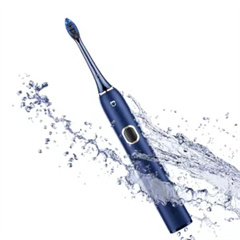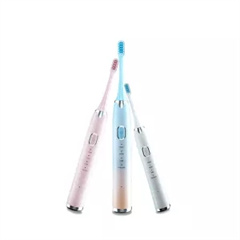Ensuring proper dental hygiene and safety for children is crucial for their oral health. Here are some essential toothbrush safety tips for parents:
- Choose the Right Toothbrush: Select a toothbrush with soft bristles and a small head that’s appropriate for your child’s age. Look for brushes specifically designed for children.
- Supervision: Until your child has developed the necessary coordination, supervise their brushing to ensure they’re using the toothbrush properly and not putting too much pressure on their gums.
- Brushing Technique: Teach your child the correct brushing technique: holding the toothbrush at a 45-degree angle to the gums, using gentle circular motions to clean all surfaces of the teeth and gums.
- Toothpaste: Use an age-appropriate fluoride toothpaste. For children under 3, use a smear (about the size of a grain of rice) of toothpaste. For children 3-6, use a pea-sized amount. Teach them not to swallow toothpaste.
- Frequency: Encourage your child to brush their teeth at least twice a day—morning and night. Make it a fun routine by brushing your teeth together.
- Timed Brushing: To ensure thorough cleaning, have your child brush for at least two minutes. You can use a timer or play a fun song to make it engaging.
- Replace Toothbrush Regularly: Change your child’s toothbrush every three months or sooner if the bristles are frayed. A worn-out toothbrush won’t clean effectively.
- Hygiene Habits: Teach your child to rinse the toothbrush thoroughly after brushing and let it air dry. Avoid sharing toothbrushes to prevent the spread of germs.
- Storage: Store the toothbrush upright and in a well-ventilated area. Avoid storing it in a closed container, which can create a damp environment that encourages bacterial growth.
- Choking Hazard: For infants and very young children, avoid using toothbrushes with small parts that could be a choking hazard.
- Model Good Behavior: Children learn by example. Let them see you taking care of your teeth by brushing and flossing regularly.
- Regular Dental Visits: Schedule regular dental check-ups for your child starting from an early age. This helps establish a positive attitude toward dental care and allows the dentist to monitor their oral health.
- Positive Reinforcement: Praise and reward your child for their good brushing habits. Positive reinforcement can help establish a lifelong habit of good oral hygiene.
- Avoid Sugar Before Bed: Encourage your child to avoid sugary snacks or drinks right before bedtime to minimize the risk of tooth decay.
- Educational Resources: Use educational materials, such as videos or books, to help explain the importance of dental hygiene to your child in a fun and engaging way.
By following these toothbrush safety tips, you can help your child develop proper oral hygiene habits and maintain a healthy smile.








